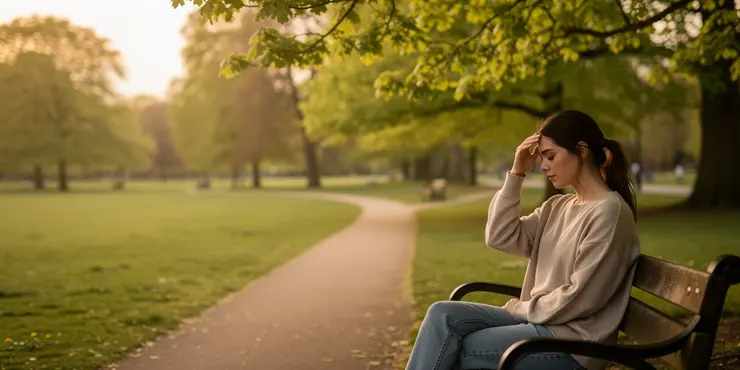
Find Help
More Items From Ergsy search
-
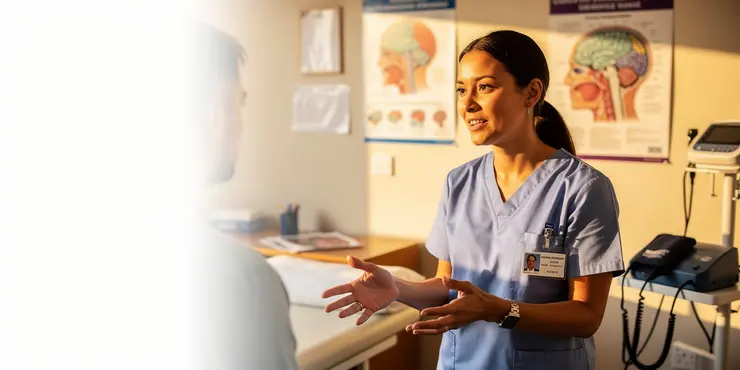
When is it safe to return to normal activities after a concussion?
Relevance: 100%
-
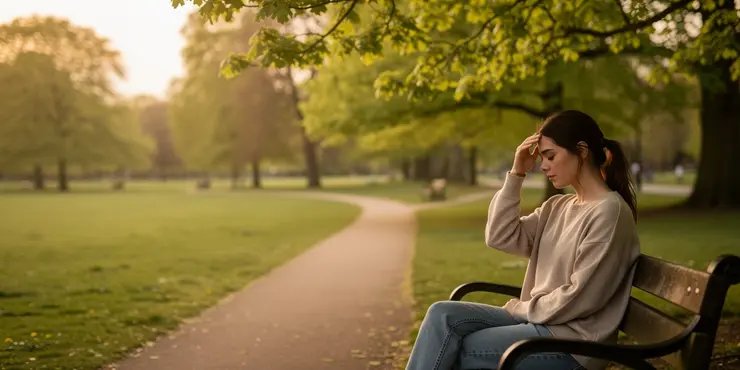
When is it safe to return to normal activities after a concussion?
Relevance: 100%
-
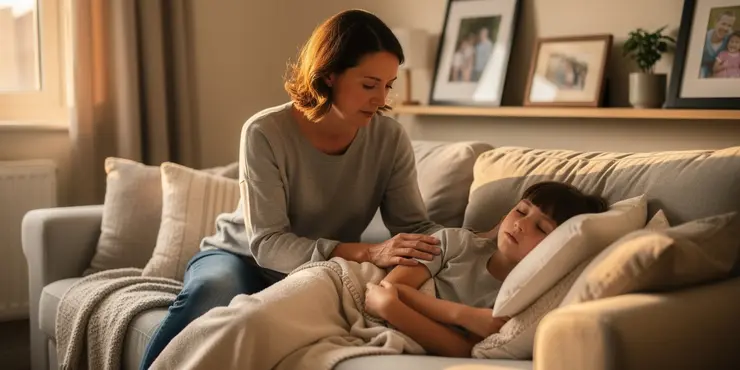
Is it safe to sleep after a concussion?
Relevance: 61%
-
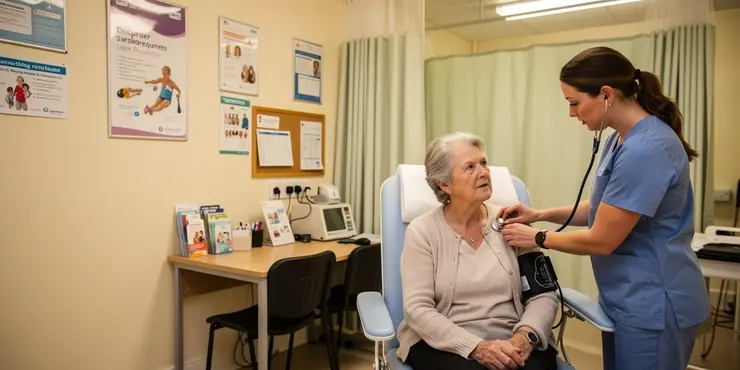
Is it safe to sleep after a concussion?
Relevance: 58%
-
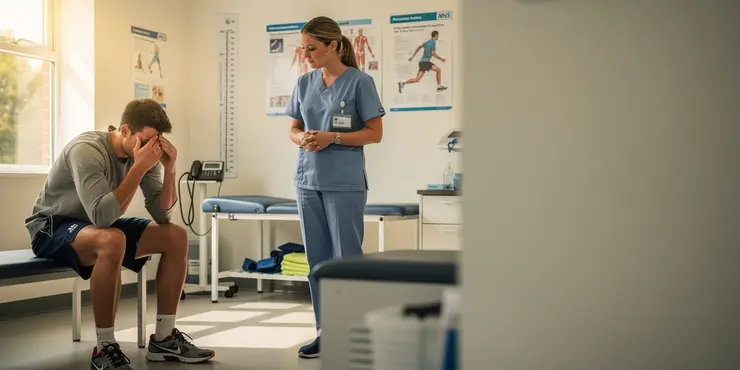
What is Concussion?
Relevance: 55%
-
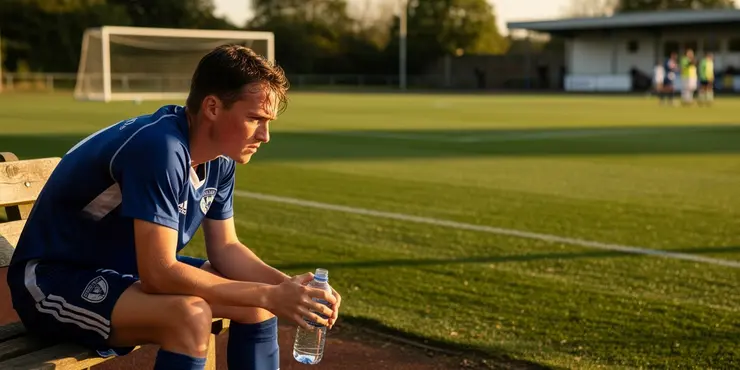
Can players return to play on the same day after a suspected concussion?
Relevance: 52%
-
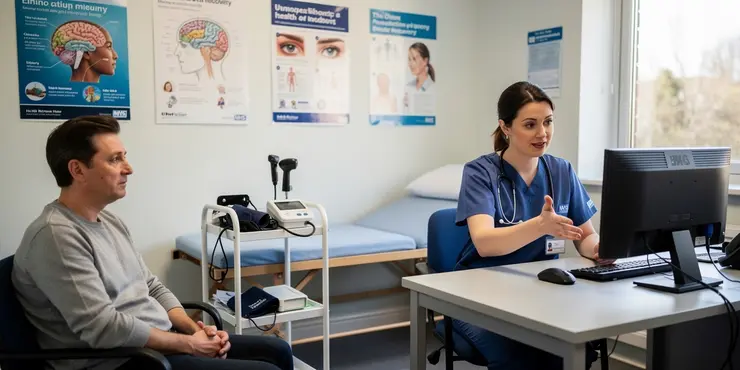
Should people with a concussion avoid screens and technology?
Relevance: 48%
-
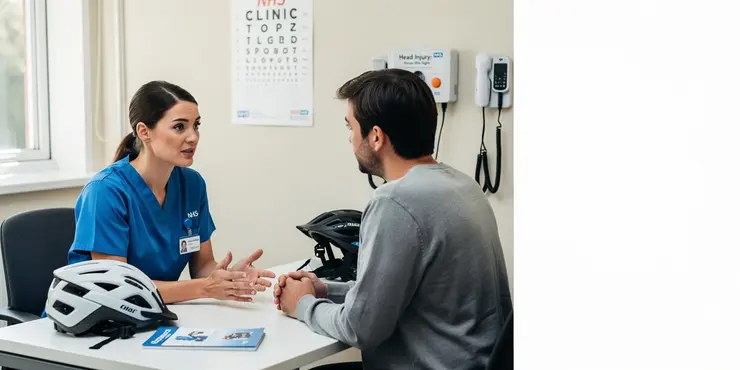
Is there any way to prevent concussions?
Relevance: 48%
-
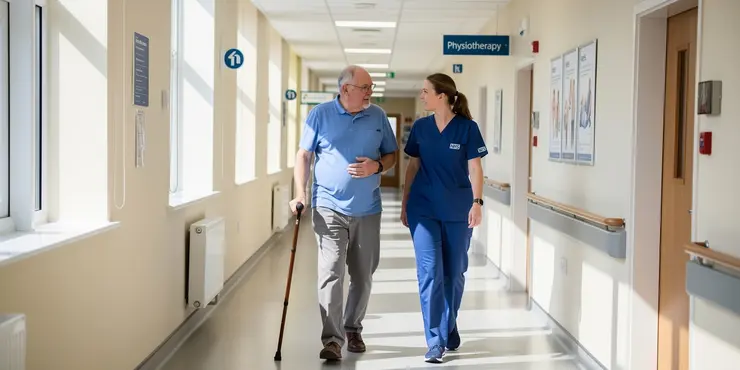
Will I be able to return to normal activities after hip replacement?
Relevance: 46%
-
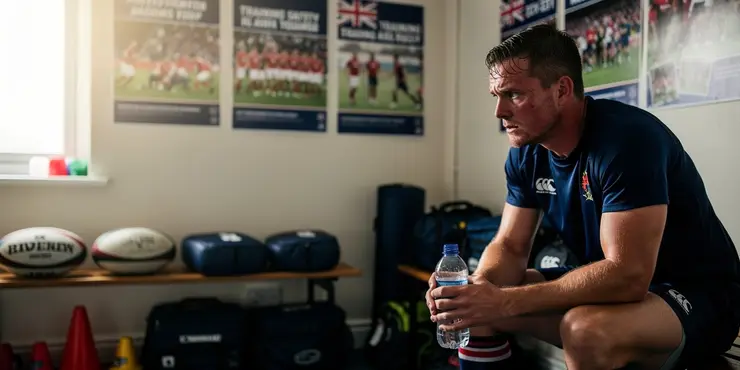
Is there a protocol for managing concussions in rugby?
Relevance: 46%
-
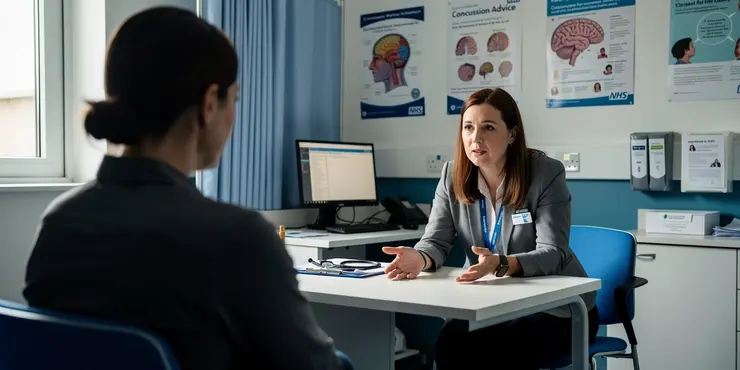
How is a concussion diagnosed?
Relevance: 44%
-
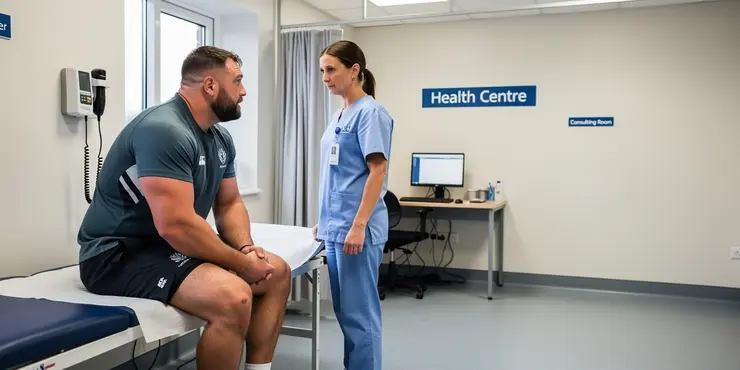
Are Concussions common in Rugby?
Relevance: 44%
-
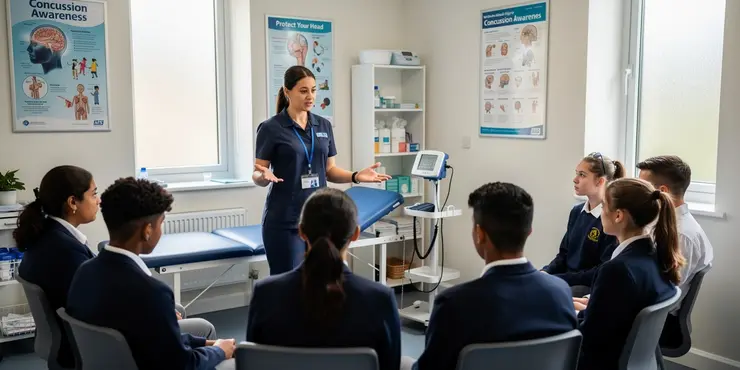
What role do schools play in managing concussions?
Relevance: 43%
-
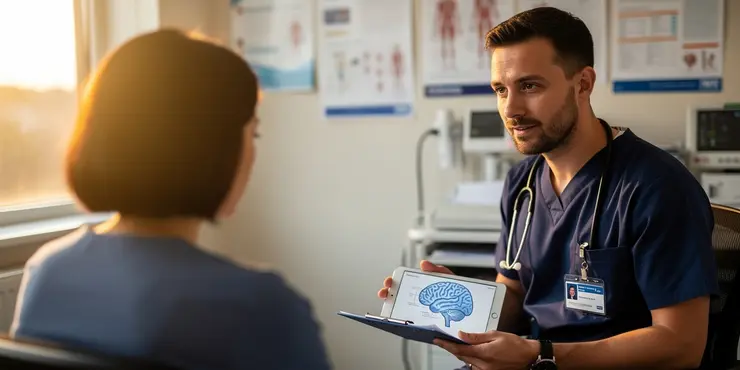
Is headache a symptom of a concussion?
Relevance: 43%
-
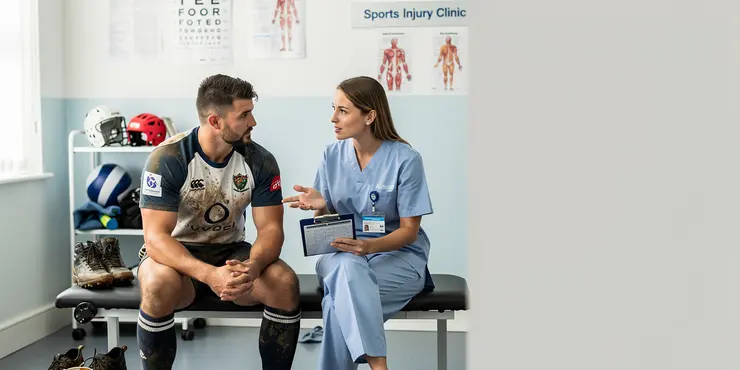
What support is available for rugby players who suffer concussions?
Relevance: 42%
-
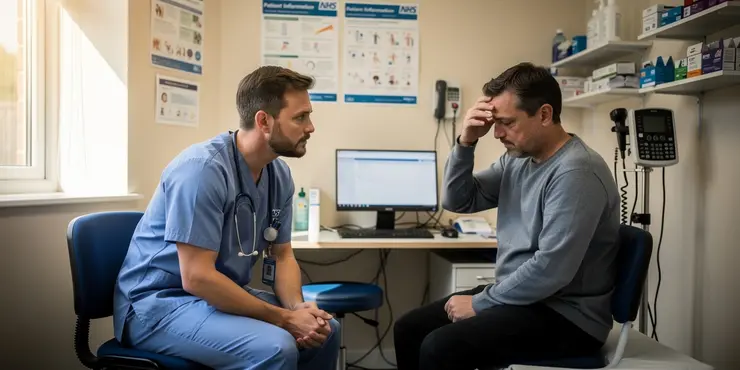
How is a concussion diagnosed?
Relevance: 41%
-
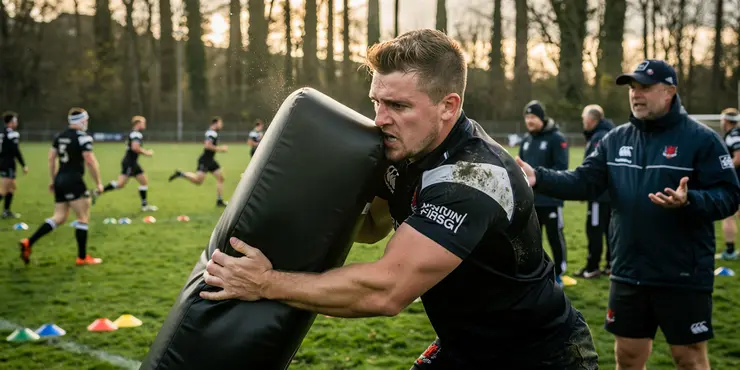
What causes concussions in rugby?
Relevance: 41%
-
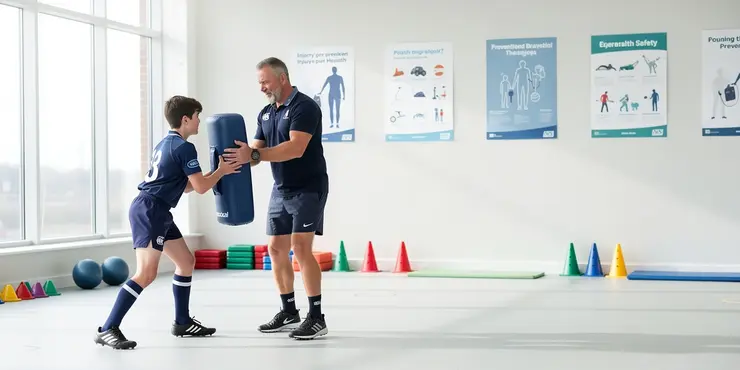
How can concussions be prevented?
Relevance: 41%
-
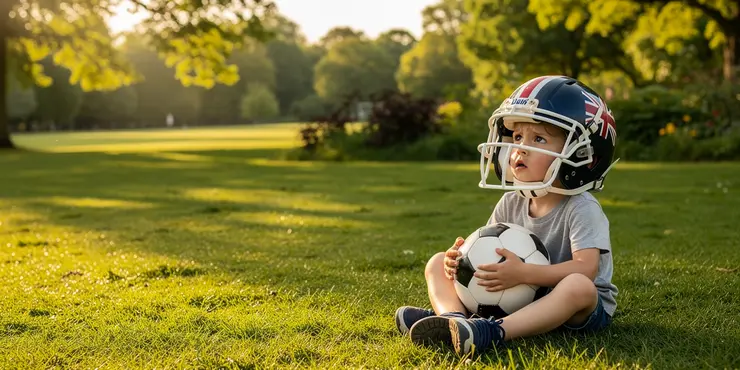
Are children more susceptible to concussions than adults?
Relevance: 41%
-
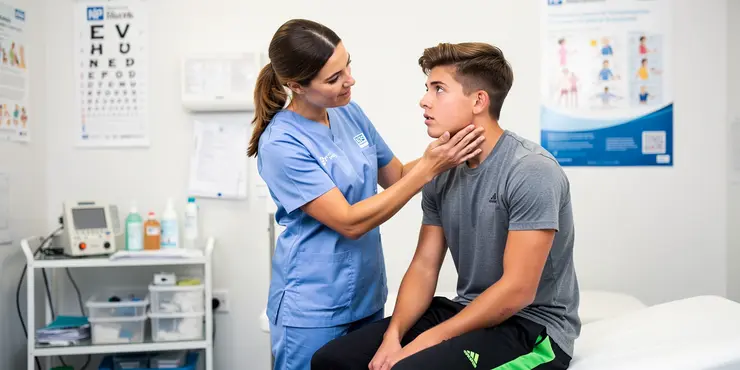
Can concussions occur without a direct blow to the head?
Relevance: 40%
-
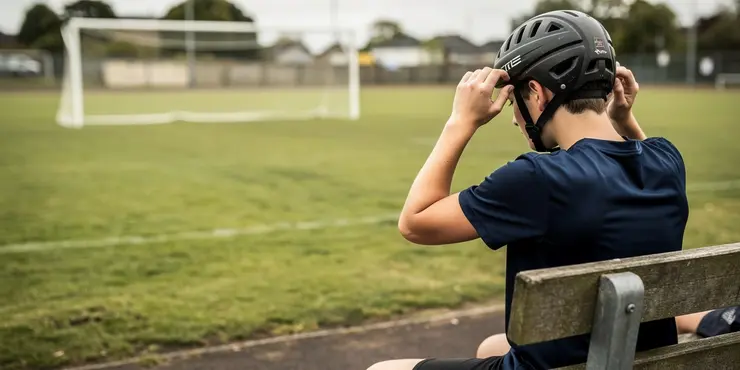
How can concussions be prevented?
Relevance: 39%
-
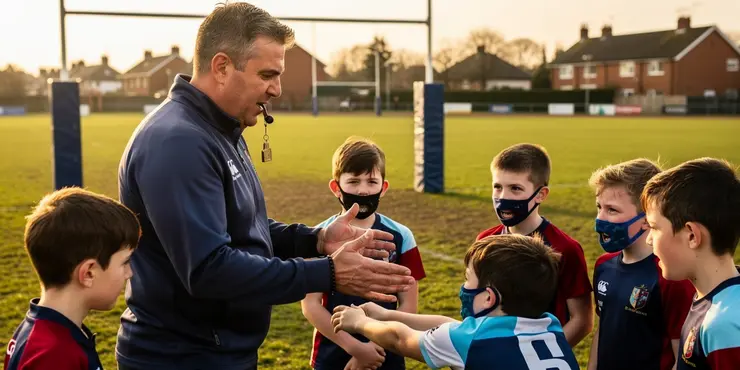
How can concussions be prevented in rugby?
Relevance: 38%
-
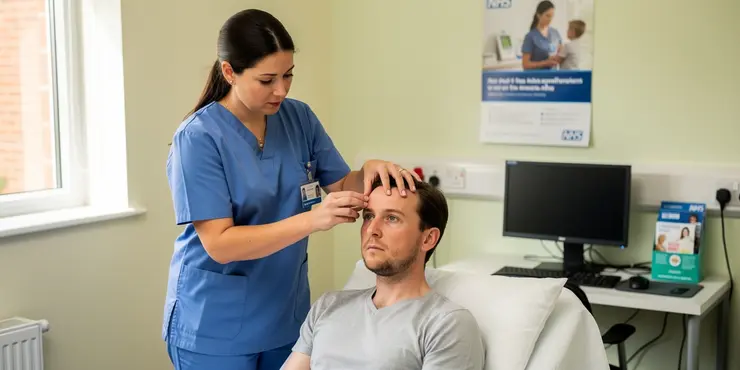
What immediate steps should be taken if someone has a concussion?
Relevance: 38%
-
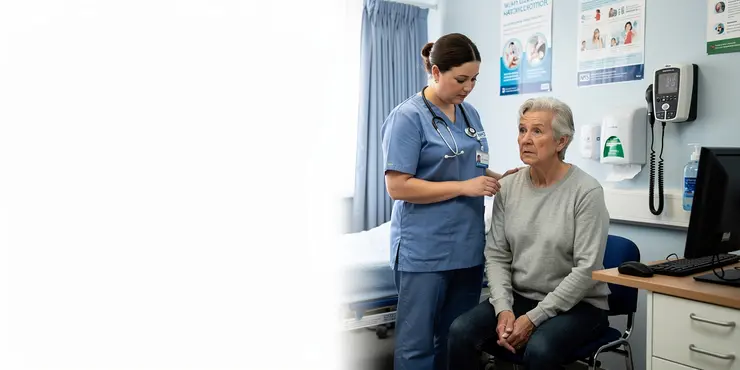
Can a concussion cause memory problems?
Relevance: 37%
-
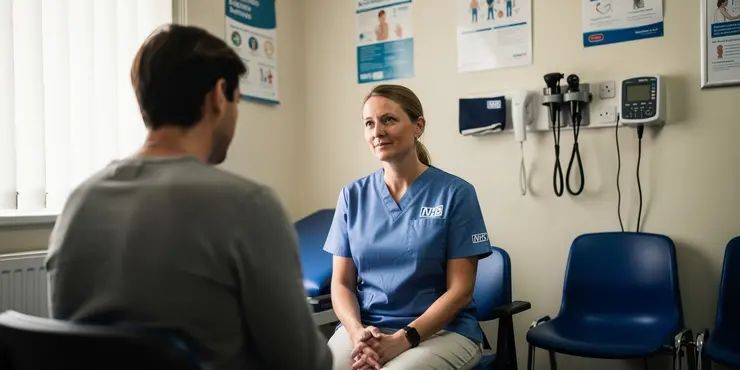
What are common symptoms of a concussion?
Relevance: 37%
-
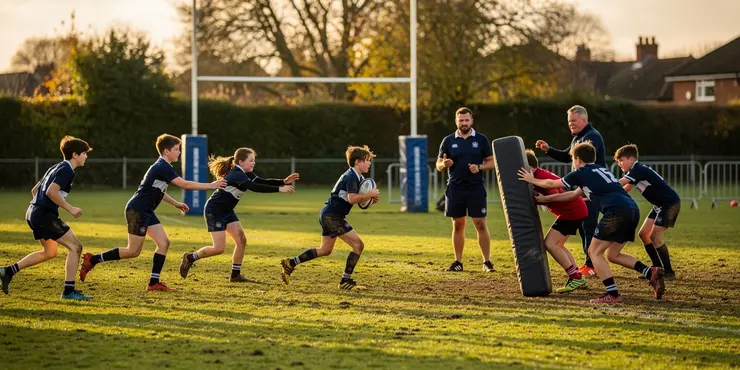
What age groups are most at risk for concussions in rugby?
Relevance: 36%
-
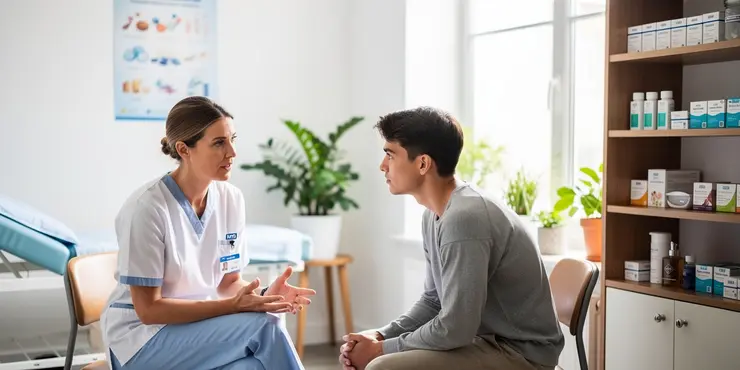
Can concussions lead to mental health issues?
Relevance: 36%
-
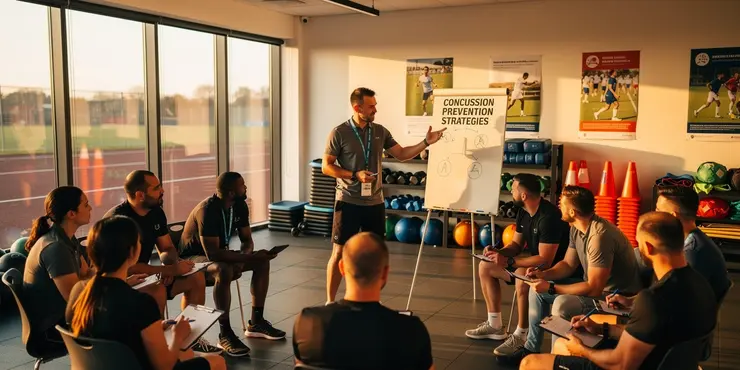
Is training available for coaches to help prevent concussions?
Relevance: 36%
-
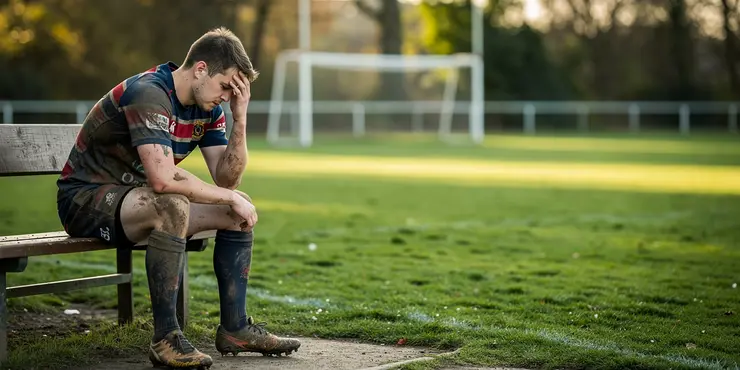
Can playing sports increase the risk of a concussion?
Relevance: 34%
-
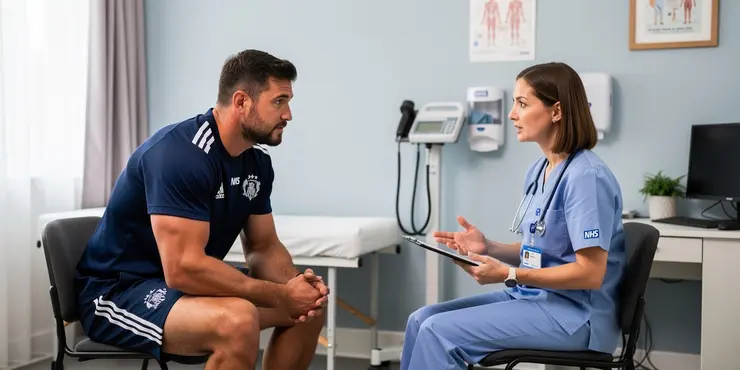
How do concussions impact long-term health in rugby players?
Relevance: 34%
-
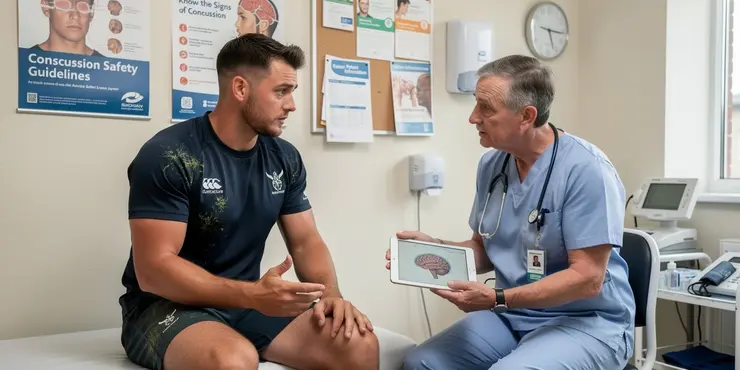
Are helmets required in rugby to prevent concussions?
Relevance: 33%
-
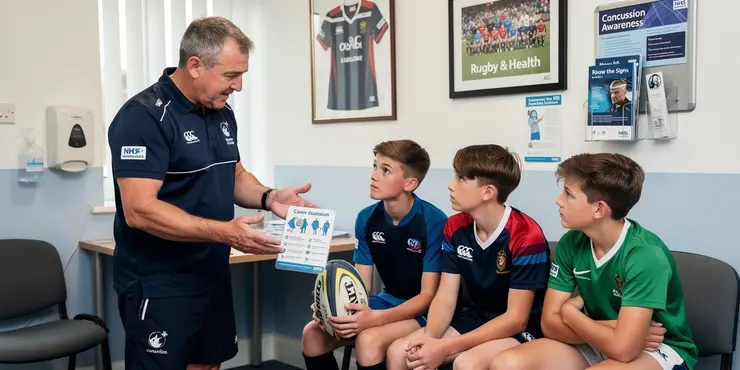
Is there a difference in concussion rates between amateur and professional rugby?
Relevance: 33%
-
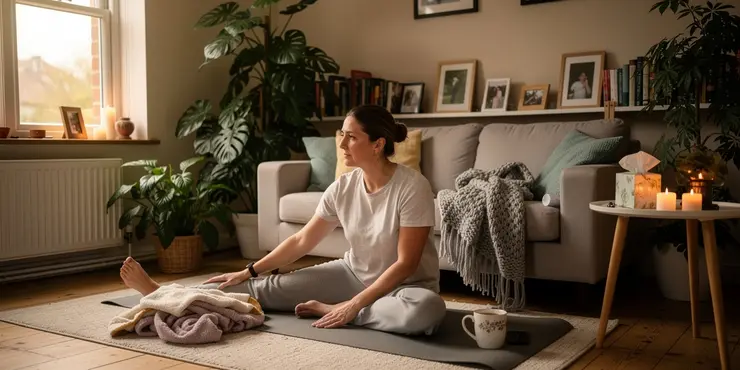
Is it safe to exercise with a cold?
Relevance: 27%
-
How can I tell the difference between normal teenage secrecy and potential grooming?
Relevance: 26%
-
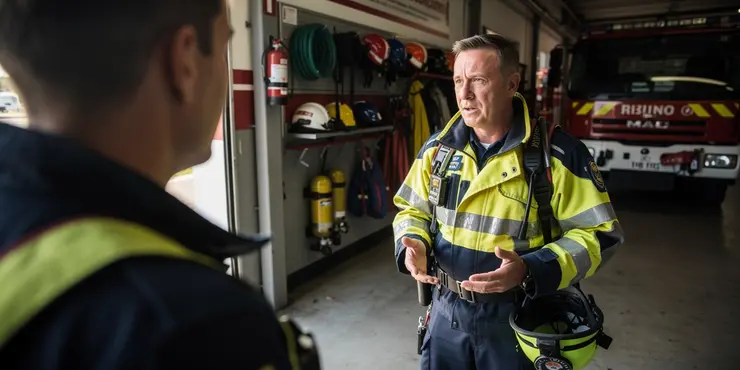
What is the normal pension age for firefighters in the UK?
Relevance: 25%
-
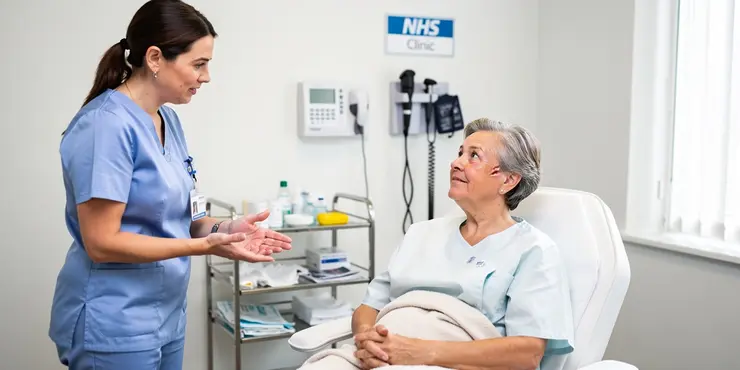
How soon can I return to work after a facelift?
Relevance: 25%
-
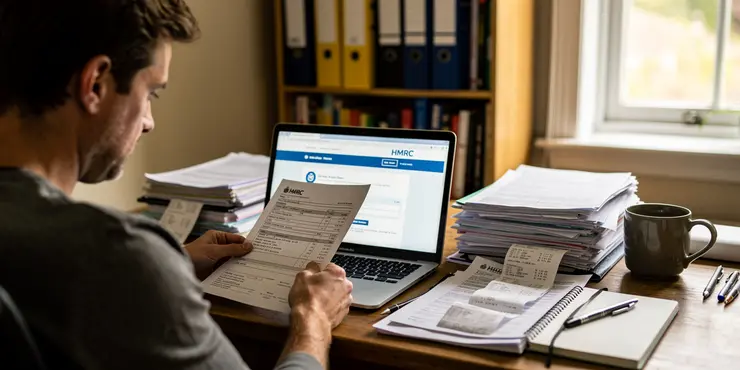
What is an online tax return?
Relevance: 25%
-
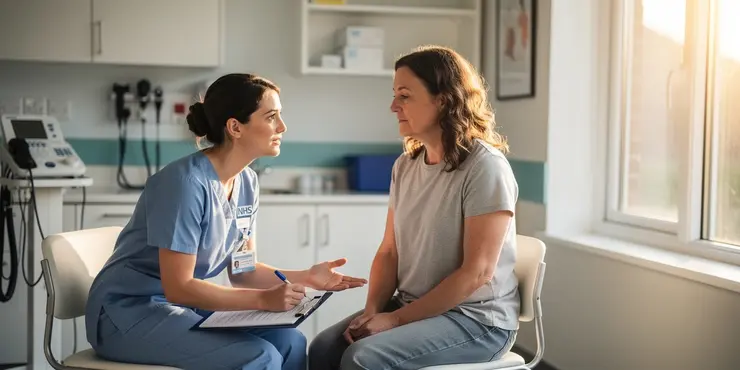
How soon can I return to work after a facelift?
Relevance: 25%
-

Starting your online tax return
Relevance: 24%
-
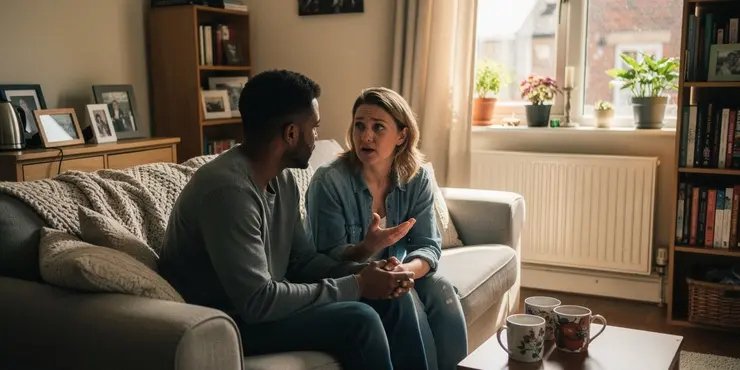
Is it normal to feel sad in a relationship sometimes?
Relevance: 24%
When is it Safe to Return to Normal Activities After a Concussion?
Understanding Concussion
A concussion is a type of traumatic brain injury caused by a blow or jolt to the head, which can alter normal brain function. Symptoms may include headaches, dizziness, difficulty concentrating, memory lapses, and even altered balance. It’s crucial to recognize that recovery is highly individual, and returning to normal activities too soon can exacerbate symptoms or lead to further injury.Initial Rest Period
Post-concussion, it is essential to rest both physically and mentally for at least 24-48 hours. This means avoiding activities that require concentration, such as reading, using electronic devices, and schoolwork. Physical activities should also be limited. This rest period is crucial for allowing the brain to heal and recover from the initial injury.Gradual Return to Activities
After the initial rest period, a gradual return to normal activities is advisable. This is often referred to as a stepwise return. Begin with light physical activities like walking, and if no symptoms return, progress to moderate activities such as cycling or jogging. It’s essential to increase activity levels gradually, monitoring for the return of symptoms at each stage.School and Work Considerations
Returning to academic or work responsibilities should be gradual. It may start with shorter days or reduced workload, progressively increasing as tolerated. Employers and educational institutions should be informed about the concussion and be accommodating of the required gradual return.Severe Symptoms and Medical Advice
If symptoms persist beyond 10 days, or if severe symptoms such as confusion, repeated vomiting, or seizures occur, seek immediate medical advice. A healthcare professional can provide a tailored recovery plan and more specific guidelines for returning to activities. In the UK, GPs and specialists can offer guidance based on the latest medical standards and protocols.Monitoring and Adjustments
The key to a safe return is ongoing monitoring. If symptoms re-emerge, it signifies a need to slow down the return process or revisit steps. Adjustments to activity levels should be made as needed, ensuring that recovery is steady and uninterrupted. Patience is critical, as rushing the process can lead to prolonged recovery or further injury. In summary, return to normal activities after a concussion should be carefully managed and monitored with an emphasis on gradual progression and symptom observation. Always consult healthcare professionals as needed to ensure a safe and full recovery.When is it Safe to Start Doing Normal Activities After a Concussion?
What is a Concussion?
A concussion is a type of head injury. It happens when you hit your head or something hits it hard. This can make your brain not work properly for a while. You might get a headache, feel dizzy, find it hard to focus, forget things, or lose your balance. It's really important to rest and get better before doing normal things again. If you start too soon, you could feel worse or get hurt again.Resting After a Concussion
After a concussion, you need to rest your body and mind for at least 1 to 2 days. This means not doing things like reading, using phones or tablets, or doing schoolwork. Don’t do sports or run around either. Rest helps your brain get better.Getting Back to Normal Slowly
After resting, you can start doing normal things again, but slowly. This is called a step-by-step return. Start with easy things like walking. If you feel okay, you can try things like riding a bike or jogging next. Take it slow, and stop if you feel bad.Going Back to School or Work
Going back to school or work should happen slowly too. Start with shorter days and do less work. Tell your teachers or your boss about your concussion so they can help you.When to See a Doctor
If you don’t feel better after 10 days, or if you feel very bad with things like confusion, throwing up a lot, or seizures, go see a doctor right away. They can help you with a plan to get better and tell you what to do next. In the UK, doctors are there to help with the best advice.Keep Checking How You Feel
The best way to get better is to keep checking how you feel. If you start feeling bad again, you might need more rest. Change how much you do until you feel good. Don’t rush it, because that can make things worse or take longer to get better. To sum up, getting back to normal after a concussion should be done slowly and carefully. Keep an eye on how you feel and listen to what your doctor says to make sure you get better safely.Frequently Asked Questions
What is a concussion?
A concussion is a type of brain injury caused by a blow to the head or a sudden jolt that causes the head and brain to move rapidly back and forth.
How long does it typically take to recover from a concussion?
Recovery time can vary but most people recover from a concussion within 7 to 10 days. However, for others, symptoms can last longer.
When can I return to work or school after a concussion?
You should return to work or school gradually and only when you no longer have symptoms. It's important to get clearance from a healthcare professional.
Is it safe to drive after a concussion?
Avoid driving until a healthcare professional says it’s safe, as concussions can impair reaction times and concentration.
Can I exercise after a concussion?
You should gradually return to physical activities under the guidance of a healthcare professional once you are symptom-free.
What are the signs that I have not fully recovered from a concussion?
Symptoms may include headaches, dizziness, difficulty concentrating, memory problems, and fatigue. If these occur, you should rest and consult your doctor.
Why is it important to rest after a concussion?
Rest helps the brain recover. Both physical and cognitive rest are crucial to avoid worsening symptoms or prolonging recovery.
What should I do if symptoms return after resuming normal activities?
Stop the activity immediately and rest. Consult your doctor to assess your symptoms and revise your recovery plan.
Is it normal to feel emotional changes after a concussion?
Yes, mood swings, irritability, and other emotional changes can occur. These should improve as you recover but consult a healthcare professional if they persist.
Are children more vulnerable to concussions?
Yes, children and adolescents are more susceptible to concussions and generally take longer to recover.
How can I support someone recovering from a concussion?
Encourage rest, help with daily tasks, minimize stress, and ensure they follow medical advice. Patience and understanding are vital.
What is the return-to-play protocol for athletes after a concussion?
It's a step-by-step process involving a gradual increase in physical activity levels under medical supervision, ensuring the athlete is symptom-free at each stage.
How can I distinguish between post-concussive symptoms and other issues?
Consult a healthcare professional as they can conduct assessments to differentiate and provide appropriate treatment.
Is it safe to consume alcohol after a concussion?
Alcohol should be avoided after a concussion as it can interfere with the healing process and exacerbate symptoms.
When is it safe to return to screen time after a concussion?
Limit screen time initially, reintroducing it gradually based on symptom tolerance and professional advice.
What is a concussion?
A concussion is a kind of head injury. It happens when your head gets hit hard. Your brain moves inside your skull.
If you have a concussion, you might feel dizzy, confused, or have a headache. You should tell an adult if you feel this way.
Get help from a doctor if you think you have a concussion. Rest is important for healing. Stay away from sports or games until you feel better.
A concussion happens when you get a hit on the head or a quick shake. This makes your brain move fast inside your head.
How long does it take to get better after a concussion?
Getting better from a concussion can take different times for different people. Most people feel better in 7 to 10 days. But some people might take longer to get better.
When can I go back to work or school after a concussion?
Had a bump on the head?
If you feel dizzy or get a headache, REST.
When you feel better, you can go back to work or school. Talk to a doctor if you're not sure.
Use a calendar or timer to help remember when to take breaks.
Go back to work or school slowly. Only go back when you feel better and don't have any sickness signs. Make sure a doctor says it's okay to go back.
Can I drive after I hit my head?
If you hurt your head, it is called a concussion. It is not safe to drive if you have a concussion.
Here are some tips to help you:
- Ask someone to drive you.
- Rest and get better first.
If you feel dizzy or confused, don't drive. Wait until a doctor says you are okay.
Do not drive a car until your doctor says it is okay. A concussion can make it hard to think and react quickly.
Can I exercise after hitting my head?
If you hurt your head, like a big bump or hit, it is called a concussion.
After a concussion, it is important to rest first. Do not exercise right away.
Here are some tips:
- Wait for your head to feel better before exercising.
- Talk to a doctor before you start exercising again.
- Start with light activities, like walking.
- If you feel dizzy or sick, stop and rest.
It's important to take care of yourself. Ask an adult if you need help or if you are unsure about what to do.
When you feel all better, you can start doing your normal activities again. It is important to ask a doctor or nurse to help you do this safely.
How can I tell if I'm not all better from a concussion?
If you have any of these: headaches, feeling dizzy, finding it hard to focus, troubles with remembering things, or feeling very tired, you should take a break. It is important to see a doctor.
Here are some ideas to help: picture cards to learn new words, using a day planner to remember things, and making sure to rest when you're tired.
Why is it important to rest after hitting your head?
Resting after you hit your head is very important. It helps your brain get better. Here is why you should rest:
- When you rest, your brain can heal.
- Stay away from bright lights and loud noises, as they can make things worse.
- Don't play sports or run around until a doctor says it's okay.
If you feel sick, tell a grown-up. They can help you see a doctor.
You can use tools like soft music or a quiet room to help you feel calm while you rest.
Rest helps your brain get better. It is important to give your body and mind a break so you do not feel worse or take longer to get better.
Here are some tips to help you rest:
- Take short naps during the day.
- Avoid loud noises and bright lights.
- Listen to calming music or nature sounds.
- Read a simple book or listen to an audiobook.
What if I feel bad again after going back to my usual activities?
If you start feeling sick again after doing your normal things:
- Stop and rest for a bit.
- Tell a grown-up or someone who can help.
- Think about what made you feel bad. Try to avoid it next time.
Here are some things that might help you:
- Use a calendar to plan easy days.
- Ask for help if things get too hard.
- Practice deep breaths to calm down.
Stop what you are doing right away and rest. Talk to your doctor. They can help check how you are feeling and change your plan to get better.
Is it normal to feel different emotions after a concussion?
Yes, it is normal to feel different emotions after a concussion. A concussion is when your brain gets hurt. This can make you feel sad, angry, or confused.
If you feel this way, it is okay to talk to someone you trust, like a parent or teacher. They can help you feel better.
You can also try to rest and do relaxing activities, like reading or drawing. This can help your brain heal.
Yes, you might feel happy one moment and sad the next. You might get grumpy easily too. These feelings should get better as you get well. If they don't, talk to a doctor.
Do children get hurt more easily in the head?
Yes, kids and teenagers can get head injuries more easily.
They need more time to get better.
How can I help someone who is getting better from a concussion?
A concussion is a type of head injury. It happens when the brain gets shaken.
Here is how you can help:
- Rest: Make sure they have lots of quiet time. Don't let them do too much too soon.
- Follow the doctor's advice: Listen to what the doctor says. It's important to follow their instructions.
- Limit screen time: Keep them away from phones, computers, and TV until they feel better.
- Easy activities: Let them do gentle things like reading a book or listening to music.
- Check on them: Ask how they feel and look for signs they are getting better.
If you notice anything worrying, call a doctor or nurse.
Help them get rest. Help them with things they do every day. Try to keep them calm and happy. Make sure they listen to their doctor. Be patient and be kind.
How can an athlete start playing again after a concussion?
If a player gets a concussion, they need to get better slowly, step by step. Here is a simple guide to help:
- Rest: The player rests until they feel better.
- Light Exercise: Easy activities like walking.
- Sports Practice: Simple exercises that are not too hard.
- Sport Training: Start team practice, but no games yet.
- Full Play: The player can now join games with the team.
Take your time. Go slowly through each step. If you feel bad again, rest and try the step again later.
Helpful Tip: Ask someone, like a coach or doctor, to help you with each step. Always listen to your body!
This is how it works:
First, the person does a little bit of exercise. Then, they can slowly do more and more.
A doctor watches to make sure the person does not get headaches or feel dizzy.
If the person feels okay, they can do more next time!
How do I tell the difference between concussion signs and other problems?
A concussion is a type of head injury. It can make your head hurt or feel dizzy.
Here’s how to know if it’s a concussion or something else:
- Look for common concussion signs: This can include headaches, feeling dizzy, feeling sick, or having trouble remembering things. These signs happen after you hit your head.
- Think about other reasons for your symptoms: Sometimes, stress, tiredness, or other illnesses can cause similar feelings.
- Ask a doctor: A doctor can help you figure out what is wrong.
Here are some tips to help:
- Write down your symptoms and when you feel them. This can help a doctor.
- Rest is very important. Take it easy and avoid activities that need a lot of thinking or physical effort.
- Tell an adult if you’re worried about how you’re feeling.
Talk to a doctor or nurse. They can do tests to find out what is wrong and help make you feel better.
Is it safe to drink alcohol after a head injury?
If you hit your head and got hurt, this is called a concussion. After a concussion, it is better not to drink alcohol. Alcohol can make you feel worse and slow down your healing. It is important to rest and take care of yourself.
Talk to a doctor or a nurse about when it is okay to drink alcohol again. They can give you the best advice for your health.
If you find reading hard, you can ask someone you trust to help you understand. Using pictures or videos about concussions can also help you learn more.
After a concussion, it is important not to drink alcohol. Alcohol can make it harder for your brain to heal and can make you feel worse.
When can I use screens again after a concussion?
If you hurt your head, you need to rest your brain. This means you should stay away from screens for a while.
Ask a doctor when it is okay to look at screens again. They will tell you when it is safe.
To help you recover, you can:
- Sit in a quiet, dark room.
- Listen to calm music.
- Have someone read to you.
- Close your eyes and rest.
Remember to always listen to the advice of doctors and caregivers.
At first, use screens only a little bit. Slowly add more screen time if you feel okay and after talking to a doctor or expert.
Useful Links
This website offers general information and is not a substitute for professional advice.
Always seek guidance from qualified professionals.
If you have any medical concerns or need urgent help, contact a healthcare professional or emergency services immediately.
Some of this content was generated with AI assistance. We’ve done our best to keep it accurate, helpful, and human-friendly.
- Ergsy carfully checks the information in the videos we provide here.
- Videos shown by Youtube after a video has completed, have NOT been reviewed by ERGSY.
- To view, click the arrow in centre of video.
- Most of the videos you find here will have subtitles and/or closed captions available.
- You may need to turn these on, and choose your preferred language.
- Go to the video you'd like to watch.
- If closed captions (CC) are available, settings will be visible on the bottom right of the video player.
- To turn on Captions, click settings .
- To turn off Captions, click settings again.
More Items From Ergsy search
-

When is it safe to return to normal activities after a concussion?
Relevance: 100%
-

When is it safe to return to normal activities after a concussion?
Relevance: 100%
-

Is it safe to sleep after a concussion?
Relevance: 61%
-

Is it safe to sleep after a concussion?
Relevance: 58%
-

What is Concussion?
Relevance: 55%
-

Can players return to play on the same day after a suspected concussion?
Relevance: 52%
-

Should people with a concussion avoid screens and technology?
Relevance: 48%
-

Is there any way to prevent concussions?
Relevance: 48%
-

Will I be able to return to normal activities after hip replacement?
Relevance: 46%
-

Is there a protocol for managing concussions in rugby?
Relevance: 46%
-

How is a concussion diagnosed?
Relevance: 44%
-

Are Concussions common in Rugby?
Relevance: 44%
-

What role do schools play in managing concussions?
Relevance: 43%
-

Is headache a symptom of a concussion?
Relevance: 43%
-

What support is available for rugby players who suffer concussions?
Relevance: 42%
-

How is a concussion diagnosed?
Relevance: 41%
-

What causes concussions in rugby?
Relevance: 41%
-

How can concussions be prevented?
Relevance: 41%
-

Are children more susceptible to concussions than adults?
Relevance: 41%
-

Can concussions occur without a direct blow to the head?
Relevance: 40%
-

How can concussions be prevented?
Relevance: 39%
-

How can concussions be prevented in rugby?
Relevance: 38%
-

What immediate steps should be taken if someone has a concussion?
Relevance: 38%
-

Can a concussion cause memory problems?
Relevance: 37%
-

What are common symptoms of a concussion?
Relevance: 37%
-

What age groups are most at risk for concussions in rugby?
Relevance: 36%
-

Can concussions lead to mental health issues?
Relevance: 36%
-

Is training available for coaches to help prevent concussions?
Relevance: 36%
-

Can playing sports increase the risk of a concussion?
Relevance: 34%
-

How do concussions impact long-term health in rugby players?
Relevance: 34%
-

Are helmets required in rugby to prevent concussions?
Relevance: 33%
-

Is there a difference in concussion rates between amateur and professional rugby?
Relevance: 33%
-

Is it safe to exercise with a cold?
Relevance: 27%
-
How can I tell the difference between normal teenage secrecy and potential grooming?
Relevance: 26%
-

What is the normal pension age for firefighters in the UK?
Relevance: 25%
-

How soon can I return to work after a facelift?
Relevance: 25%
-

What is an online tax return?
Relevance: 25%
-

How soon can I return to work after a facelift?
Relevance: 25%
-

Starting your online tax return
Relevance: 24%
-

Is it normal to feel sad in a relationship sometimes?
Relevance: 24%


